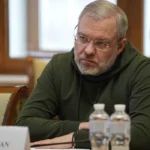At the heart of diplomatic tensions, Niger finds itself at a crossroads. Recently, the United States initiated a turning point in its relations with the Nigerien transitional authorities. On December 2, 2023, American Ambassador Kathleen Fitzgibbon presented her credentials to the Nigerien Minister of Foreign Affairs, Bakary Yaou Sangaré. This gesture marks a notable development, part of a global trend where powers like China, Russia and Gulf countries choose dialogue and respect for Nigerien sovereignty, rather than confrontation.
This orientation has visibly influenced the actions of ECOWAS (Economic Community of West African States), currently in full reflection on its strategy to adopt vis-à-vis Niger. ECOWAS, after having imposed rigorous sanctions on Niger following the military coup of July 26, is now considering a relaxation of these measures.
The recent ECOWAS summit highlighted this requirement, reflecting a shift in the organization’s strategy in the face of regional and global pressures. A special committee, made up of the presidents of Benin, Togo and Sierra Leone, was formed to begin negotiations with the military regime in Niger.
ECOWAS would have in fact proposed from the start to lift the sanctions imposed on Niger in exchange for the release of ex-president Mohamed Bazoum, detained since the end of July. Despite repeated requests for his release, he remains in detention. The situation remains tense, with ECOWAS continuing to press for a rapid return to civilian rule and even threatening military interventions.
The Nigerien military leader, General Abdourahamane Tchiani, however, refused to release Mr. Bazoum, while agreeing to reduce the transition period. But the crucial detail of this reduction remains unspecified. This declaration, broadcast on the national channel, demonstrates the determination of the military regime to maintain its hold, despite international and regional pressure.
In response to this position, ECOWAS announced that it would maintain its sanctions on Niger. However, the organization then opted for a light version of the demands: a rapid transition to civilian government, they say in the corridors. For the moment, no formal feedback on this point from Niamey. However, she expressed her desire to collaborate with the military to establish a road map for the transition. Depending on the results of these discussions, sanctions could be gradually eased. This openness to dialogue shows a certain flexibility on the part of ECOWAS, which seems to seek a balance between firmness and diplomacy.
This article is originally published on lanouvelletribune.info






